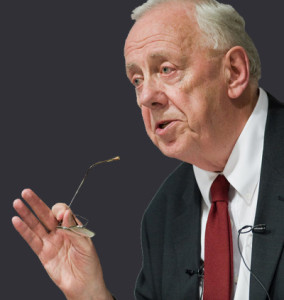One of the prominent and baffling themes in ancient mythology is the idea that famous cities were founded on fratricide. In the Bible Cain is the founder of the first city [Genesis 4: 17], and in the pagan world, the most famous example is that of Rome. Rome is named after Romulus, its traditional founder, who was also the murderer of his twin brother Remus.
Perhaps this mythology is less puzzling when we recall that the word politics is rooted in the Greek word polis or city. Most of us are aware that at some level politics seems to require violence, or at least the threat of violence. Rome went on to have a storied history, one in which violence was typically front and center. When God became man, He also became a victim of Rome’s savagery, as did today’s martyrs, Peter and Paul.

Relations between brothers in the Bible are frequently violent. Here Amnon is murdered by men sent by his half-brother Absalom. Both were sons of King David.
Peter and Paul form an interesting contrast with Romulus and Remus. But we shouldn’t be too quick to place the pairs on opposite sides of the problem of violence. After all, both Peter and Paul showed themselves capable of righteous brutality. Peter, according to tradition, drew the sword against the high priest’s slave, and Paul was attendant at the murder of Saint Stephen and bore letters of arrest against the Christians of Damascus. Furthermore, Peter acquiesced, as did the other disciples, with Rome’s violence inasmuch as he allowed Jesus to be dragged away without raising his voice in protest against this manifest injustice. Before the resurrection, he acted unthinkingly, but tellingly, as if the capacity for violence gave the city of Rome real authority.
What changed them both was the encounter with the mysterious and fathomless mercy of Jesus Christ the founder of the city of God, the heavenly city. The Apostles discovered that there is no place for a kind of purified violence in the service of God, that what they believed to be their righteousness, their willingness to fight other human beings for the sake of God was, in fact, a unwitting participation in the machinery that leads inexorably to the death of Jesus Christ. This is explicit in the life of Saint Paul, whom Jesus confronted directly with the question, “Why are you persecuting me?”
This encounter with God’s mercy in Jesus Christ convinced them both that there is no sacred calculus that pits the righteous against the unrighteous, and therefore gives permission to the righteous to flatter themselves by focusing on the sins of others. Or, to put it more bluntly, Peter and Paul discovered that we are all a part of the problem, and man’s anger does not work God’s justice [James 1: 20]. Or, as Saint Paul put it to the Romans, “God has consigned all men to disobedience.” Why? “That he may have mercy upon all. [Romans 11: 32]”
It is this mercy that bound Peter and Paul to Jesus and so to each other. And if we wish to have true peace, let us today with confidence draw near to the throne of grace, that we too may receive His mercy [cf. Hebrews 4: 16].
 Just as it did for Peter and Paul, this encounter will require us to change, to renounce, in fact, the City of Man, founded as it is on division, exploitation, and violence. What the early monks discovered is that this renunciation of the world requires a renunciation of the passions, those distortions of desire that pit me against others, leading to their exploitation for my pleasure or ease. Again, Saint James: “What causes war and what causes fightings among you? It is not your passions [James 4: 1]?” In other words, we must seek to follow the examples of Peter and Paul, if not by literal martyrdom, then by death to ourselves in the form of ascetical self-denial. May this important work always be accompanied by and draw life from the peace and joy of knowing the surpassing love of Christ Jesus, Who loved us and gave Himself for us [cf. Galatians 2: 20].
Just as it did for Peter and Paul, this encounter will require us to change, to renounce, in fact, the City of Man, founded as it is on division, exploitation, and violence. What the early monks discovered is that this renunciation of the world requires a renunciation of the passions, those distortions of desire that pit me against others, leading to their exploitation for my pleasure or ease. Again, Saint James: “What causes war and what causes fightings among you? It is not your passions [James 4: 1]?” In other words, we must seek to follow the examples of Peter and Paul, if not by literal martyrdom, then by death to ourselves in the form of ascetical self-denial. May this important work always be accompanied by and draw life from the peace and joy of knowing the surpassing love of Christ Jesus, Who loved us and gave Himself for us [cf. Galatians 2: 20].
[homily for the Solemnity of Ss. Peter and Paul, A.D. 2020]

